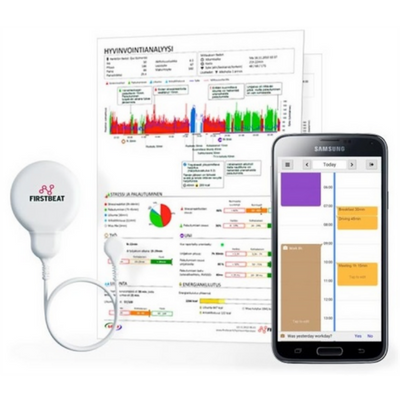More and more people are dealing with burn-out. I think almost everybody knows somebody who had to deal with it, be it a colleague, a friend or a family member. People are stressed, don’t stop and… get into trouble.
Resilience is supposed to be the answer. But what does resilience mean? A common definition is: “Resilience is the ability to recover from setbacks, adapt well to change, and keep going in the face of adversity”.
I believe it’s important to be resilient, we will continuously have to deal with possible stressful situations. I do believe you can ‘train your resilience muscle’, I even offer training and coaching in it AND… if find it important to add that very resilient people are not necessarily invulnerable…
And I know, because I’ve been there… I have been a trainer in stress management for more than 12 years. I’ve attended several courses, read many books but… most importantly: I always tried to put everything into practice, to ‘walk my talk’. And I am still convinced that that is the reason why I could ‘cope’ for so long. Whenever I experienced a stressful situation, I knew what to do: I knew how to work on my perception (and beliefs), I tried to take care of my buffer and body and I learned how to make the right choices (#YAHAC).
But there was this (almost) constant fatigue in the background: even when I went to bed early, I was eating well, I mediated and… I didn’t feel like I was ‘stressed’…
To put it simply: batteries need to be charged. It turned out that mine wasn’t charging. Carrying on on an empty battery requires a lot of energy of the body: it will go into a stress reaction (even though you don’t necessarily notice this). And if this goes one for months, or even years… it’s bound to end badly… As I could experience myself.
I am sorry I didn’t know the Firstbeat Lifestyle Assessment yet… But you don’t have that excuse, because I’m telling you all about it now.
What is it? You wear a small device for 3 days and 3 nights (the Bodyguard) which measures your heart rate variability.
While you are wearing it, you take notes on your computer (or your smartphone) on what you are doing when (working, eating, cycling, watching television, …). This will help you to make the most out of the report.
After you’ve sent the device back, a personal report is created. The objective data are visually represented to show your stress and recuperation moments.
Together with the report, you get an individual feedback session (online) of 30 minutes.
This report was a real eye-opener to me. The colours clearly show when you are in your ‘red’ or ‘green’ zone and … believe me, this does not always correspond to what you think…
When you see it on paper, and match it with your agenda, it becomes very clear when you are using energy and when you are charging your batteries. Of course, not all days are the same, therefore they look also at a total of 3 days. How is your ‘battery’ doing after 3 days: does it keep on charging or is it more ’empty’ at the end than when you got started (despite the 3 nights…).
Would you like to know more about this? Make sure to watch the video (on Facebook or Youtube): I show you the device and walk you step by step through my first report (it does take 30′).
Would you like to try it out yourself? Check it out here.
Why do I recommend it? You get a clear, objective report on how resilient your current lifestyle is. I repeat: my first report did surprise me but I also learned a lot (By the way: I have done a new assessment since. The results were better (and less surprising), because I made some changes…)
Just to be clear: the result could also be a positive surprise. A client noticed that she ‘recuperates’ while she’s doing coaching sessions… Isn’t that wonderful? Another client was worried because she wasn’t sleeping very well. Apparently her recuperation was excellent. It was a big relief!
Why can I not stop talking about this? People who are under a lot of stress, know that something can go wrong and… when they are smart, they look for help to so something about it. However, people who ‘think’ they do not have a lot of stress (our passionate professionals…) don’t do anything about it (“because I don’t need it, I have only positive stress”) and… they can get into trouble. Hence my ‘drive’. Been there, done that, got the T-shirt…
You CAN measure it. If you don’t measure it, you can’t manage it. So, … what are you waiting for? #YAHAC
If you liked the above, you can sign up for more Tips & Tricks by signing-up here.
Looking forward to hearing from you!

